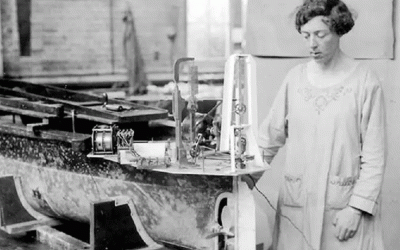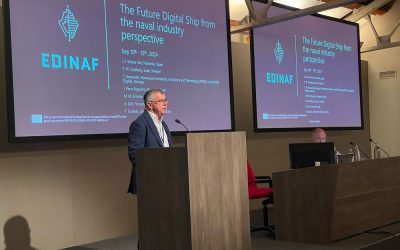Shiprepair & Maintenance: 2nd Quarter 2020
InfraStrata took over the Harland & Wolff shipyard in Belfast last December after reaching a deal with its administrators. The company is now embarking on an ambitious strategy aimed at breathing new life back into the iconic drydocks, which had effectively been mothballed for around a year prior to the rescue deal being agreed.
There is no doubt that ferry and ro-ro work will play a key role, in the short-term at least. It is significant that the first vessel to sail into the yard’s drydocks after the deal was signed was the ro-ro cargo ship, Seatruck Performance, which was welcomed by InfraStrata management, headed by CEO John Wood, shortly before Christmas last year.
Now under a revamped management team, led by former Seaspan Shipyards chief John Petticrew, Harland & Wolff has already made rapid progress in re-establishing itself as a destination for the short-term maintenance and refit work required by ro-ro ships and ferries operating in the Irish Sea.
In its first five months under InfraStrata control, Harland & Wolff has handled some 14 ferries for different owners, including Seatruck, Stena and Irish Ferries. Further bookings for P&O Ferries are reportedly in hand.
“Ferry work is going to be a big part of what we do here as it is passing trade,” says Wood. “Customers in this sector are already getting the message that there has been a change and that new more customer-centric management is in place.”
The strategic importance of the yard to Irish Sea trade generally is further stressed. “We have been operating normally despite the Covid-19 emergency,” comments Wood. “The reason we have been able to do so is a recognition of the vital role we play in keeping ferries operating and the supply chains for food, medicines and other essential items flowing.”
In recent years, Harland & Wolff has been through some turbulent times, with its long-term commitment to shiprepair and conversion coming into question. Wood stresses that InfraStrata sees shiprepair and conversion as being a core business for the yard and one that it is likely to account for a majority of its turnover in the immediate future.
“We see a sound future for the yard in shiprepair, although we do plan to use facilities here in a variety of markets, including defence, oil and gas, renewable energy and a non-maritime commercial project,” says Wood. “As far as shiprepair is concerned, we also plan to build a diversified business base and see significant opportunities in cruise ship work, as well as coastal vessels, offshore support ships and rigs, among others.”
Wood points out that Harland & Wolf is working closely with the Spanish shipyard group, Navantia, following the signing of a memorandum of understanding last year and this is expected to generate opportunities in shipbuilding and offshore construction, as well as in shiprepair and conversion.
Infrastrata’s main area of activity prior to the Harland & Wolff acquisition was the Island Magee gas storage facility in Northern Ireland, around 20km from the Belfast drydock site. Wood says he sees significant synergies between the two businesses, which are now being explored.
A number of investments are underway to modernise the yard and prepare it for a sound future. This has included the implementation of a new business-wide IT system and the overhaul of pumps and electrical systems across the shipyard.
The company is further investigating the possible dredging of the docks from 11.5m to 12m, mainly to facilitate access for large cruise ship refit projects, while also under consideration is a shiplift to enable the yard to handle smaller vessels more cost effectively.




